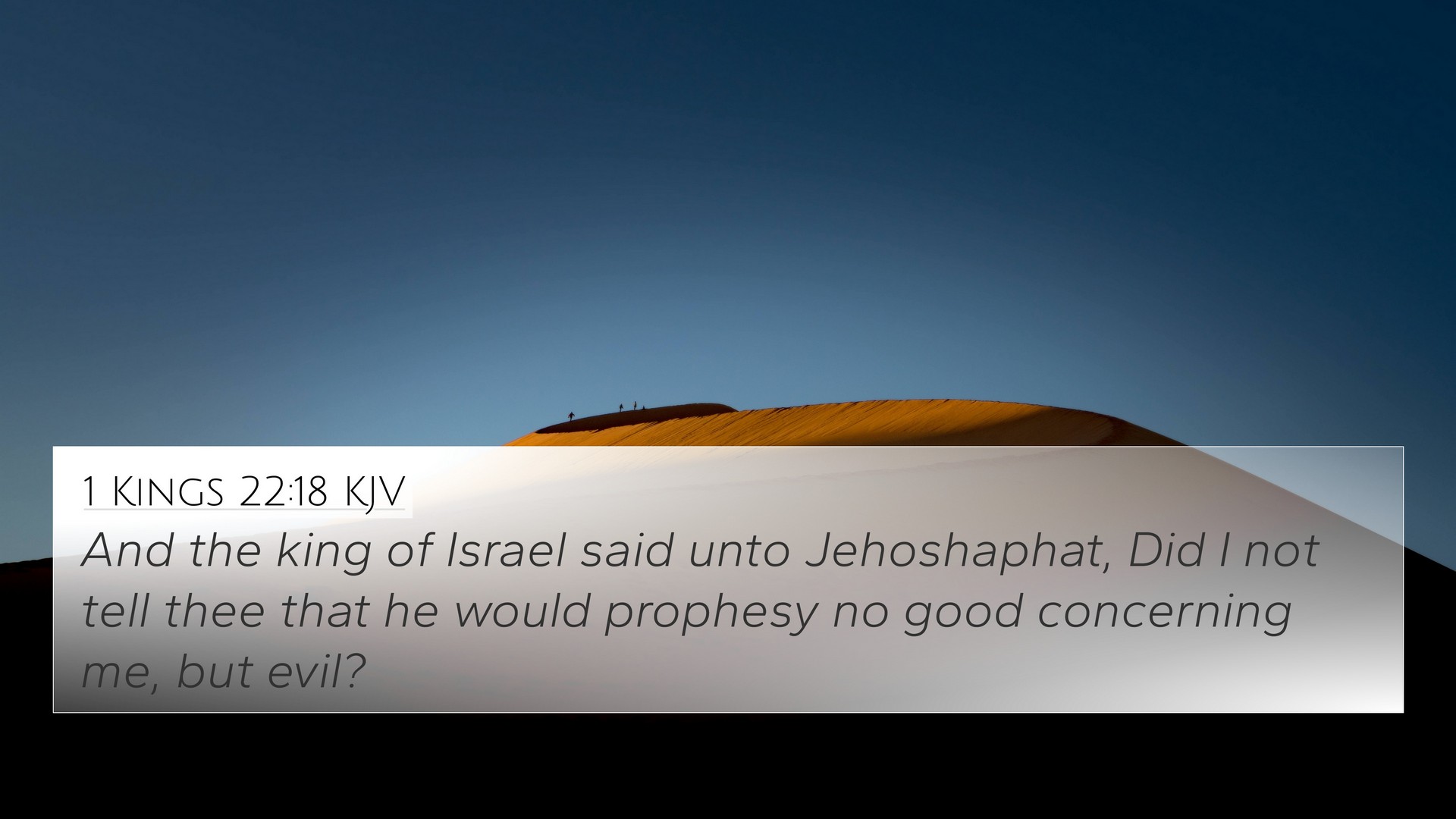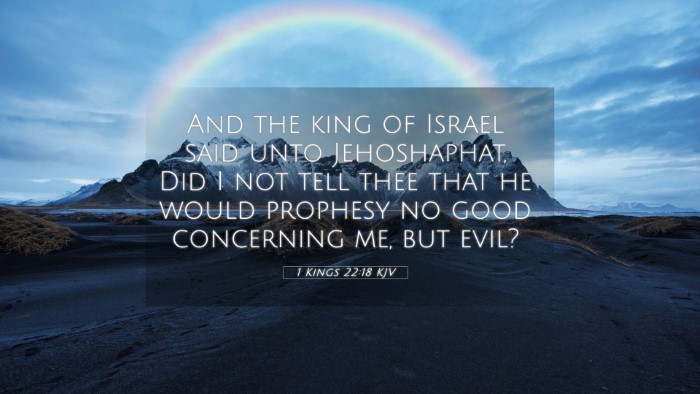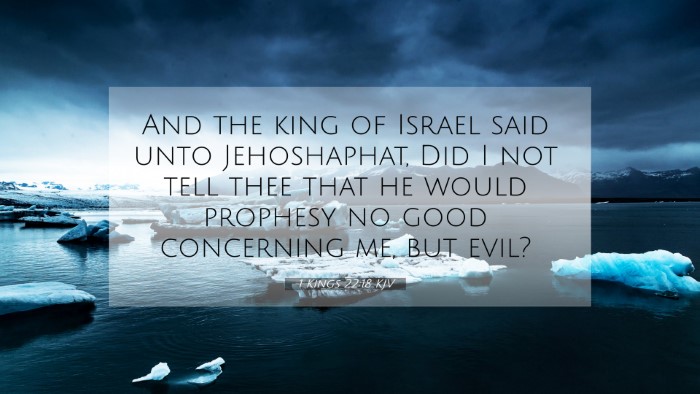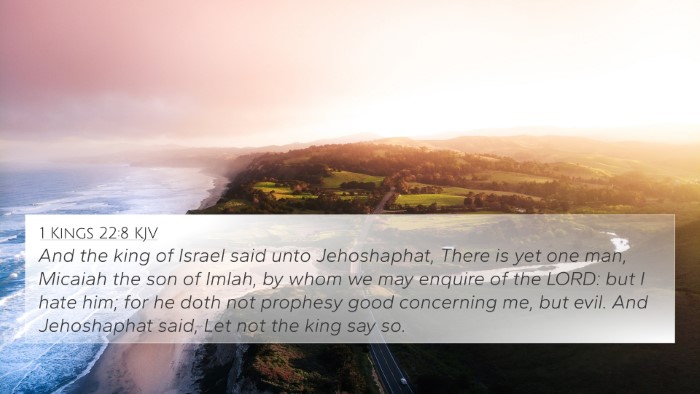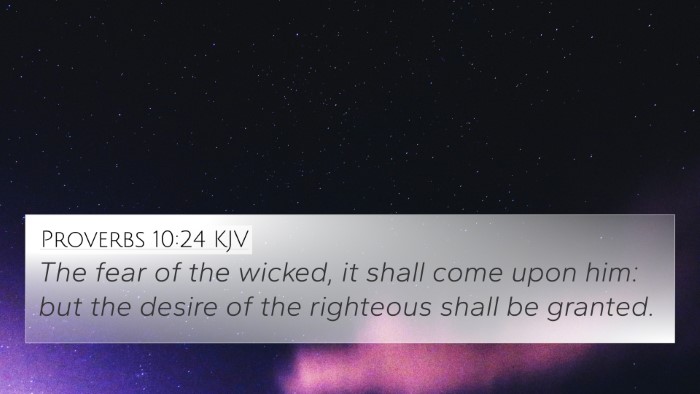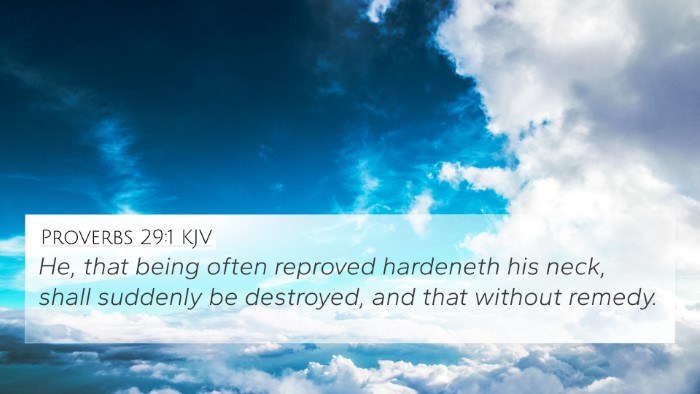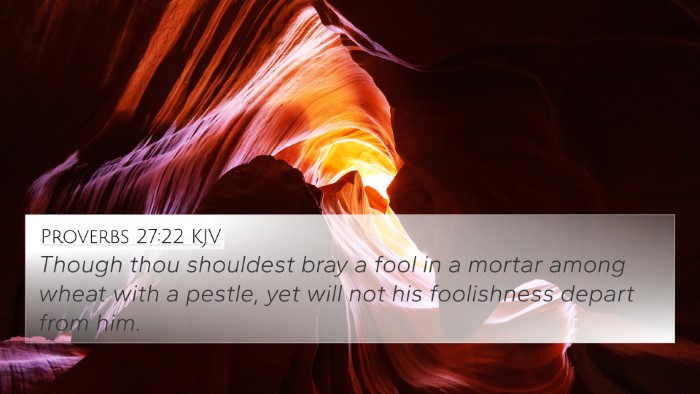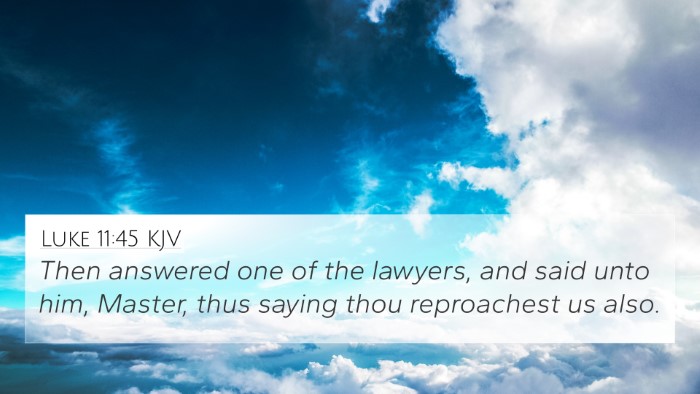Understanding 1 Kings 22:18
1 Kings 22:18 presents a significant moment in the biblical narrative where King Ahab of Israel is engaged in a discussion about the prophecy from Micaiah concerning the battle against Aram. This verse elucidates the dynamics of leadership, prophecy, and the consequences of disregarding spiritual counsel.
Verse Context
In the immediate context, Ahab has summoned Micaiah to give insight into whether he should go to battle. This is after having received favorable prophecies from other prophets. Ahab's subsequent response underscores his allegiance to falsehood when he dismisses Micaiah's warning.
Summary of Commentary Insights
-
Matthew Henry:
Henry emphasizes Ahab's wickedness in seeking prophets who tell him what he wants to hear, illustrating a principle that resonates throughout Scripture: the danger of surrounding oneself with agreeable voices over the truth.
-
Albert Barnes:
Barnes points out the importance of discernment in seeking divine guidance. This highlights the necessity of critically evaluating counsel, especially when the majority promotes a favorable but misleading narrative.
-
Adam Clarke:
Clarke reflects on the prophetic function, noting that Micaiah represents the true prophet amidst a sea of deception, calling into question the reliability of prophets who don’t challenge the moral and spiritual integrity of their audience.
The Importance of True Prophecy
This verse serves as a potent reminder of the need for authentic spiritual guidance. True prophets, as illustrated through Micaiah, often bring messages that challenge the status quo and call for repentance.
Cross-References to Explore
- Jeremiah 23:16: Discusses the false prophets and the importance of discerning true from false messages.
- 2 Chronicles 18:14-22: Highlights the confrontation between Micaiah and the false prophets.
- 1 Kings 22:9: Illustrates Ahab's demand for a prophet who would declare favorable messages.
- Proverbs 12:15: Advises that the way of a fool is right in his own eyes, emphasizing the folly in ignoring wise counsel.
- Isaiah 8:20: Stresses the importance of aligning oneself with the true word of God amidst darkness.
- Ezekiel 13:9: Discusses God’s judgment on false prophets and those who lead His people astray.
- Matthew 7:15-20: Jesus warns about false prophets and encourages discernment in recognizing their fruits.
Thematic Connections
The story of Ahab and Micaiah speaks to broader themes in scripture such as the conflict between truth and deception, the moral responsibility of leaders, and the power of prophetic guidance. These themes appear throughout the Bible, providing a rich tapestry of interconnection.
Practical Applications of the Verse
Readers are encouraged to reflect on how they seek guidance in their own lives. Do they choose counsel that affirms their desires, or do they proactively seek out challenging but truthful voices? This verse serves as a caution against the complacency often found in echo chambers of affirmation.
Conclusion
1 Kings 22:18, with its focus on prophetic integrity and spiritual discernment, resonates throughout the Bible's narrative. It invites readers to critically engage with the messages they receive, aligning them with God's truth rather than personal affirmations.
Further Study Suggestions
- Utilize a Bible concordance to find themes related to prophecy.
- Employ a Bible cross-reference guide to map out the connections between Old Testament warnings and New Testament teachings.
- Analyze cross-referencing Bible study methods for understanding how verses relate to one another.
